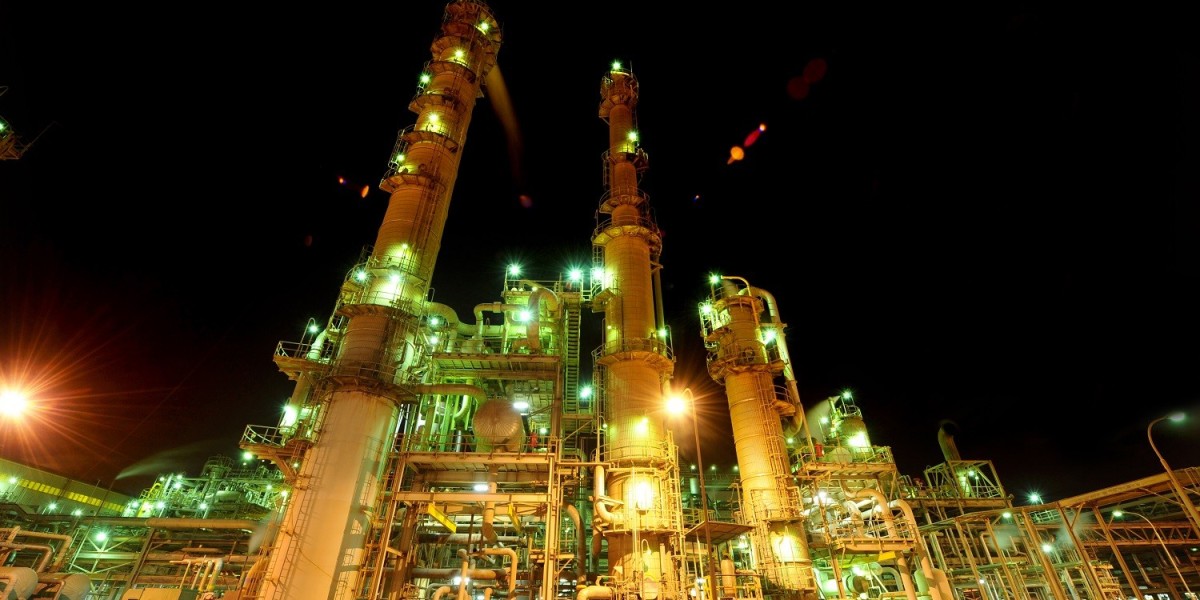The United Arab Emirates (UAE) oil and gas market has long been one of the most influential in the global energy sector. As a major oil-producing country in the Middle East, the UAE plays a critical role in the global supply chain of energy resources. The oil and gas industry in the UAE has not only shaped the country's economy but also influenced regional and global energy dynamics. With vast oil reserves and a growing investment in natural gas, the UAE continues to be at the forefront of energy production, driving both economic growth and technological innovation in the energy sector.
Overview of the United Arab Emirates Oil and Gas Market
The UAE's oil and gas market is an essential part of the country's economic structure, with petroleum being the primary driver of national revenue. The market is heavily reliant on the extraction, processing, and export of crude oil and natural gas, and it also has a significant impact on the international energy market. The UAE’s oil reserves are primarily located in the emirate of Abu Dhabi, which holds about 95% of the nation's total reserves. These reserves make the UAE one of the top oil producers in the world.
The oil and gas industry in the UAE is divided into several key sectors:
Upstream: Exploration and production of crude oil and natural gas
Midstream: Transportation and storage of oil and gas
Downstream: Refining, distribution, and marketing of oil products
Oil Reserves and Production
The UAE holds some of the largest proven oil reserves in the world, estimated at over 98 billion barrels. These reserves are primarily located in the offshore and onshore fields of Abu Dhabi, with some smaller contributions from other emirates. The UAE's oil production capacity is one of the highest in OPEC, and the country is often involved in setting policies that affect global oil prices through its participation in the Organization of the Petroleum Exporting Countries (OPEC).
In recent years, the UAE has also invested heavily in maintaining and enhancing its oil production capabilities. Advances in drilling technology, such as horizontal drilling and hydraulic fracturing, have allowed the country to tap into previously inaccessible reserves, thereby ensuring long-term oil production stability.
Natural Gas Reserves and Market
In addition to its vast oil reserves, the UAE has significant natural gas resources, particularly in the offshore fields of Abu Dhabi. While natural gas is used predominantly for domestic consumption, including electricity generation and desalination plants, the UAE has been increasingly exploring opportunities to export liquefied natural gas (LNG). This is part of the nation's broader diversification strategy, as the UAE aims to expand its role in the global energy market beyond crude oil.
The UAE is also exploring ways to reduce its dependency on imported natural gas by increasing domestic production and developing new gas fields. The development of the "Shah Gas" field, for example, has been crucial in boosting the country's gas production, which is expected to reduce the reliance on imports from neighboring countries.
Government Policy and Regulatory Framework
The UAE government plays a central role in shaping the oil and gas market through policies and regulations that ensure the sustainable development of energy resources. The government has established numerous strategic initiatives to modernize the energy sector, promote efficiency, and support the transition toward renewable energy. Among these initiatives is the UAE Vision 2021, which aims to reduce the country's reliance on oil revenues by diversifying into other sectors such as renewable energy, technology, and infrastructure.
Key regulatory bodies overseeing the UAE oil and gas industry include:
Abu Dhabi National Oil Company (ADNOC): ADNOC is the state-owned oil company of the UAE and is responsible for exploring, producing, and distributing the country’s oil and gas resources. ADNOC plays a pivotal role in the country’s oil and gas operations.
Energy and Industry Department (EID): This government body is responsible for formulating policies related to energy production and ensuring the long-term sustainability of the UAE’s oil and gas resources.
Diversification and Sustainability Efforts
In recent years, the UAE government has actively sought to diversify its economy, with a focus on renewable energy and sustainable practices. The nation has invested in projects such as the Masdar Initiative, which aims to develop renewable energy sources like solar and wind power. The UAE is also home to the world’s largest single-site solar power plant, the Noor Abu Dhabi Solar Plant, which is expected to contribute to a reduction in greenhouse gas emissions.
Despite these efforts, oil and gas remain the cornerstone of the UAE’s economy. However, the country is focused on balancing this with long-term sustainability goals and reducing its carbon footprint, both domestically and globally.
Key Players in the UAE Oil and Gas Market
Abu Dhabi National Oil Company (ADNOC)
ADNOC is one of the largest and most influential oil companies in the world. As the primary operator of the country’s oil fields, ADNOC plays a pivotal role in shaping the UAE’s oil and gas market. The company is involved in exploration, production, refining, and distribution of oil and gas, with operations across the entire value chain.
ADNOC has also entered into various joint ventures with international oil companies (IOCs) to enhance its production capabilities and develop new technologies. This collaborative approach has enabled ADNOC to remain competitive in the ever-evolving energy sector.
Dubai Petroleum
While Abu Dhabi dominates the UAE’s oil and gas sector, Dubai also contributes to the country's energy production. Dubai Petroleum, which operates offshore fields in the Arabian Gulf, produces significant amounts of oil and gas, although its share is much smaller compared to ADNOC’s operations.
Other Key International Companies
Several international oil companies have a strong presence in the UAE, including:
ExxonMobil
Shell
TotalEnergies
BP
These companies operate in partnership with ADNOC and other UAE-based energy firms, contributing to the country's technological advancements and global energy exports.
Future Outlook of the UAE Oil and Gas Market
Looking ahead, the UAE oil and gas market is poised to face both challenges and opportunities. On the one hand, global shifts toward renewable energy, decarbonization, and growing environmental concerns may pose a threat to the long-term dominance of oil and gas. On the other hand, the UAE’s significant reserves, technological advancements, and strategic investments in energy infrastructure position it to remain a key player in the global energy market.
As the UAE continues to diversify its economy, it will focus on ensuring that its oil and gas sector remains competitive, while simultaneously embracing sustainability and renewable energy initiatives. By balancing these objectives, the UAE oil and gas market is expected to continue to be a cornerstone of the nation's economy and a key contributor to global energy production.
Conclusion
The United Arab Emirates oil and gas market remains one of the most important energy markets in the world. With its vast reserves, advanced technologies, and strong government policies, the UAE is well-positioned to maintain its leading role in the global energy landscape. As the country navigates challenges related to energy diversification and sustainability, its oil and gas industry will continue to be a major force in shaping both regional and global energy dynamics.
More Trending Reports



![Ethernet Multistation Access Transceiver Market Size, Share [2032]](https://biiut.com/upload/photos/2024/10/obiefqpTm2exhlxKKuuz_07_292ee917611383d5067366d14183ead6_image.jpg)